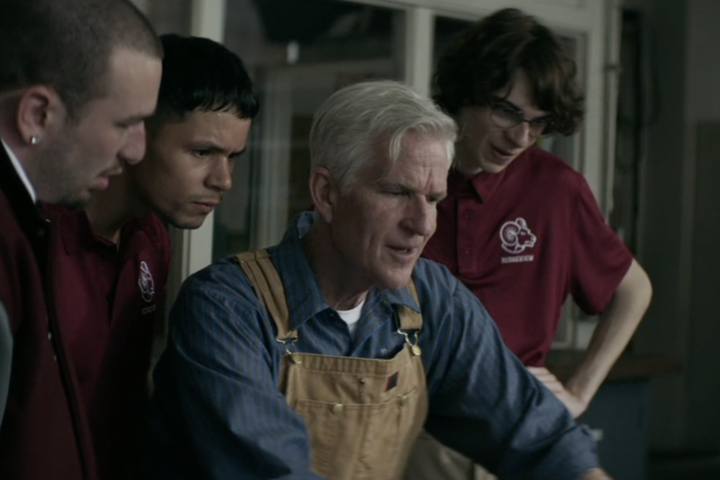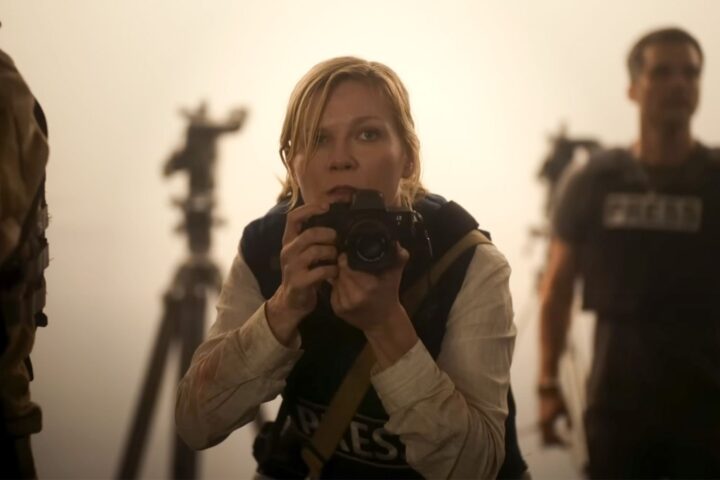There’s something immensely satisfying about Clint Eastwood’s current movie persona as the grizzled old man who has seen it all and has no patience for any of it. He did this curmudgeon in spite of himself routine in 2008’s Gran Torino to great effect, and he approximates the same salty control again in the roundly entertaining Trouble with the Curve, the first film in nearly two decades featuring him as an actor but which he hasn’t also directed.
As Gus Lobel, an aging baseball scout for the Atlanta Braves who eschews all things modern and knows how to pick the next big thing simply by his instincts—as well as piles of newspapers, stats and the crack of the bat—Eastwood is in signature form, all but erasing the residue of his bizarre recent RNC appearance.
Gus knows what he knows, and to hell with anyone who disagrees. But the ball club’s management doesn’t quite see it that way. His boss and longtime friend Pete (John Goodman) believes he’s still got it, but an oily climber in the ranks (Matthew Lillard) with his eyes on a GM role (well-played by Robert Patrick) wants Gus put out to pasture.
Working against Gus is his failing eyesight, and after being diagnosed with macular degeneration, he ignores the warnings and hits the road to North Carolina to scout a potential new draft pick, an unctuously unpleasant bubba named Bo Gentry (Joe Massingil), who just might be the next big thing. Or not.
Enter Amy Adams as Gus’ estranged daughter Mickey, on the verge of becoming partner in a prestigious law firm (the film doesn’t pull punches about the sexism faced by qualified women who are diminished by the executive boys’ clubs), recruited by Pete to accompany her dad and monitor his health while assisting with the player assessment.
The unlikely pair settle down in a roadside motel run by the mother of a well-mannered teen concession vendor crassly nicknamed Peanut Boy (Jay Galloway), mocked by Gentry but who will figure critically in the film’s later stretches. The film’s midsection is a leisurely joy of games, bars, motel rooms, redux, as father and daughter struggle to figure out what that means, exactly.
Also on the scene is a former Gus recruit and injured star player turned scout named Johnny (a likable Justin Timberlake) who takes an immediate liking to Mickey; the pair compares stats while line dancing and tentatively getting closer in a handful of easygoing scenes. In these small moments, Trouble with the Curve effortlessly gives us small pleasures of people we like watching and listening to—a forgotten art in movies today.
Trouble with the Curve isn’t a sports picture, per se, rather a father-daughter reunification story. In two late confrontation scenes, Mickey forces gruff Gus to revisit a very painful shared history. How the film does this is a testament to screenwriter Randy Brown’s avoidance of melodrama and Adams’ unfussy and directness; the combination produces some honest and touching notes.
Adams, who owns this picture, is superb as the dislocated career woman who is really a tomboy inside, hurting over Gus’ many abandonments. She knows more about baseball than any man, a veritable textbook of stats with a fine eye for recruits. What’s missing is a connection with her dad, which she desperately desires. The actress, who has a patented girl-next-door vibe even in such dramatically accomplished turns as in 2010’s The Fighter, is so appealing here as a high-powered career woman who never wanted any such thing, but rather only for an absent father to be proud.
Directed by Eastwood protégé Robert Lorenz, a veteran of no less than twelve collaborations with his star, the picture has an old-fashioned, measured and involving style that takes its time with its 111 minutes, doesn’t do anything earth shattering but has a remarkably solid payoff in its last 15 minutes that really makes us feel like we’ve been somewhere with people we like.
Some may say Trouble with the Curve has its share of predictable moments, and they’d be right. But so what? When they are delivered with this much professionalism and polish, who can complain?
3 stars.



